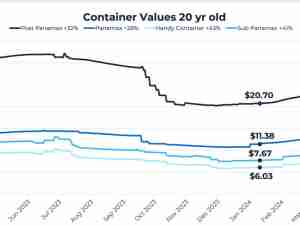U.S. Delays Ruling on Canada Lumber Duties as Spat Continues
By: Jen Skerritt | Aug 29 2017 at 10:49 AM | Maritime
The U.S. has delayed a decision about duties on softwood lumber imports from Canada as the two nations remain at an impasse in a long-simmering spat.
The U.S. Department of Commerce will postpone its final determination for anti-dumping and countervailing duties on Canadian softwood lumber until Nov. 14 at the latest, the department said Monday in an emailed statement. The decision was initially expected in the first week of September.
“I remain hopeful that we can reach a negotiated solution that satisfies the concerns of all parties,” Commerce Secretary Wilbur Ross said in the statement. “This extension could provide the time needed to address the complex issues at hand and to reach an equitable and durable suspension agreement.”
The dispute between Canada and the U.S. over softwood lumber has caused intermittent friction for years. Tensions escalated in April when the Trump administration imposed preliminary countervailing duties of as much as 24 percent on Canadian imports. Additional duties of as much as 7.7 percent followed in June.
Prospects for an accord have faded, according to some analysts. Speculation had swirled that the countries may resolve their difference before talks this month aimed at renegotiating the North American Free Trade Agreement.
Deal ‘Window’
Last week, Canada’s Ambassador to the U.S., David MacNaughton, said the country is prepared to sue the U.S. if trade negotiations fail.
“That window to really get a deal done is rapidly closing,” Dan Ujczo, an international trade and customs lawyer with Dickinson Wright’s Ohio office, said by phone earlier on Monday. “Once the Nafta modernization started, they’re really taking more of a backseat on this issue.”
Lumber futures in Chicago gained 15 percent this year through Monday as the trade discord led to uncertainty over supplies. The U.S.’s delay will prolong the period when Canadian lumber imports won’t face countervailing duties as the preliminary tariffs expired Aug. 25, CIBC analyst Hamir Patel said in a note. For most of the so-called gap period, the nation’s producers will only face a 7 percent anti-dumping duty and for a short window toward the end of the year, exporters could face zero duties on shipments as preliminary anti-dumping duties are also set to expire, he said.
The prospect of supplies flowing more freely sent lumber futures for Sept. delivery down as much as 2.6 percent to $370.10 per 1,000 board feet on the Chicago Mercantile Exchange Tuesday. That’s the biggest intraday decline since July 6.
If Ross “thinks he can close a deal this year, then granting an extension makes sense,” Patel said.









